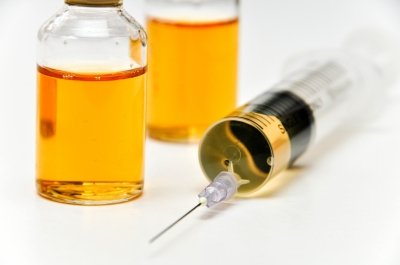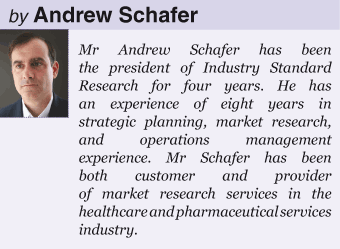South Korea gives tax breaks, establishes R&D fund
13 September 2013 | Opinion | By BioSpectrum Bureau

Last year, South Korea was listed as eighth in the world based upon the value of their pharma transactions.

The world of pharmaceuticals is becoming more global. As the financial performance of many pharmaceutical companies continue to tighten, these companies will continue to look for new countries to ensure their clinical trials are conducted as efficiently as possible and to open up additional commercial revenue streams.
Grabbing the opportunity, the South Korean government has put in place several initiatives to encourage innovation in the healthcare industry. Combine this with a highly educated population, a western-style medical practice, a highly-wired (or wireless) communications infrastructure, and a population concentrated in a few urban areas, and South Korea starts to look like a pretty good place for clinical development activities, says an industry report by Industry Standard Research (ISR).
Market landscape
The Korean Pharmaceutical Manufacturers' Association (KPMA) represents approximately 190 research and development companies and, in recent years, its members collectively invested $2 billion to upgrade the manufacturing plants, to be in compliance with current Good Manufacturing Practice (cGMP) standards. IMS forecasts a 6.5 percent compound annual growth rate (CAGR) through 2015. With the implementation of the free trade agreement between the US and South Korea, both country's tariffs will be reduced by 95 percent within the next five years. It is estimated that South Korean-US exports will grow by 12 percent. The agreement has also strengthened intellectual property protections in Korea. The business environment in South Korea is ranked eighth in the world and sixth in the Organization for Economic Co-operation and Development (OECD) for 2011, according to the World Bank. Newly streamlined regulations and tax provisions have made Korea a more businessfriendly country.
The South Korean government has implemented new policies giving tax breaks for research and development costs and established a research and development (R&D) fund for the pharmaceutical market. The government also promotes pharmaceutical mergers and acquisitions, and trains workers in the industry. News coverage continues to announce the expansion of Big Pharma into South Korea, highlighting new research and development centers, partnerships, and preferred provider status of domestic Korean clinical research organizations (CROs), while global clinical research organizations are further developing market access and domestic partnerships.
Last year, South Korea was listed as eighth in the world based upon the value of their pharma transactions, ahead of countries such as Japan, Switzerland, and the United Kingdom, according to a report by IMAP Healthcare.
Clinical trial environment
As South Korea continues to adopt a more western way of life, lifestyle-related diseases such as obesity, cardiovascular disease, diabetes, and osteoporosis are on the rise. Furthermore, the fact that most hospitals have clinical trial centers provides a convenient one-stop-shop for clinical trials, including study coordinators, training for investigators, dedicated pharmacy and pharmacists, archiving facilities, and dedicated monitoring rooms. Nearly all Korean investigators are well-versed in English. They can read and write the language without difficulty. Standard operating procedures (SOPs), case report forms (CRFs), and monitoring reports are all written in English.
The need for more clinical research professionals was noted as a challenge to conducting trials in South Korea. Due to the growth of clinical research in Korea, investigators and experienced study coordinators are in high demand. Investigational New Drug trials are only conducted in Korean FDA- ertified clinical trial institutions (mostly general hospitals) where physicians are busy with patient care and it can be challenging to find investigators who can allocate enough time to clinical trials. Korea National Enterprise for Clinical Trials (KoNECT) currently supports various education programs for clinical research associates (CRAs), clinical investigators, study coordinators, clinical pharmacologists etc to help meet the growing market demand. The regulatory requirements in Korea are similar to International Conference on Harmonisation of Technical Requirements for Registration of Pharmaceuticals for Human Use (ICH) countries.
The Korean Food and Drug Administration (KFDA), which is reportedly soon to become the Ministry of Drug and Food Safety (MDFS), will have greater powers to initiate legislation and deal with food and drug safety issues. Reviews by the Ministry of Drug and Food Safety and Institutional Review Board (IRB) can be done in parallel which helps to expedite the process.
Pharmaceutical sector can utilize strengths and weaknesses of both, multi-national clinical research organizations as well as domestic ones in the country, thus, improving the conduct of their trials.












